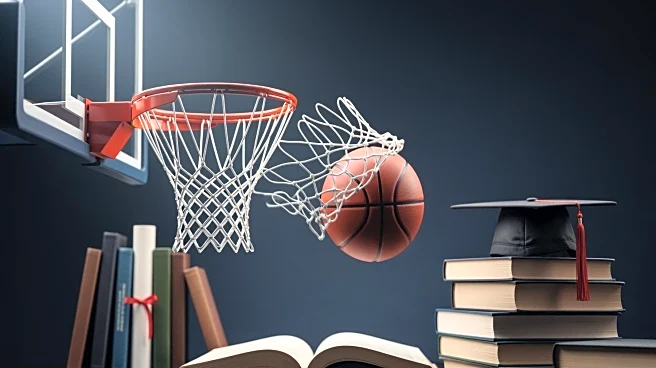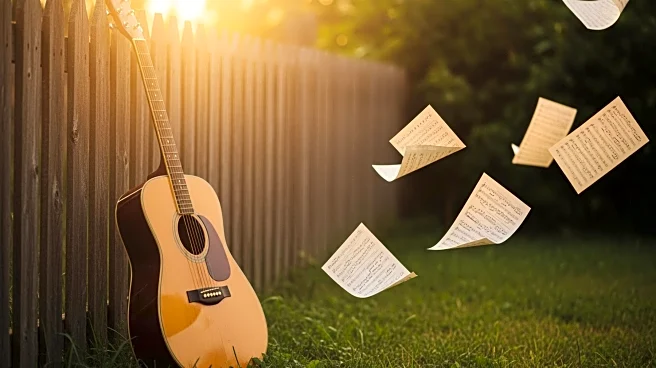What's Happening?
Kansas basketball coach Bill Self has expressed concerns over the NCAA's updated eligibility guidelines that allow NBA G League players to enter the transfer portal and apply for college basketball eligibility.
Speaking at the Big 12 basketball media days, Self admitted to not fully understanding the new rules but warned of potential unintended consequences. His comments come in the wake of Louisville's recent recruitment of London Johnson, a three-year G-League guard, marking a shift in college basketball dynamics. Self, who is preparing for his 23rd season at Kansas, highlighted the need for clarity on the rules, questioning whether players could declare for the NBA draft and return to college if unsuccessful.
Why It's Important?
The NCAA's decision to allow G-League players eligibility in college basketball could significantly alter recruitment strategies and the competitive landscape of college sports. Coaches like Bill Self are concerned about the implications, as it may lead to a shift in focus from high school recruits to G-League players. This change could impact the traditional pathway to college basketball, affecting high school athletes' opportunities and the overall talent pool. The move also raises questions about the balance between professional and collegiate sports, potentially leading to a reevaluation of recruitment policies and eligibility criteria.
What's Next?
As the NCAA's new eligibility rules take effect, college basketball programs may need to adapt their recruitment strategies, potentially increasing their focus on scouting G-League players. This shift could prompt further discussions among coaches, athletic directors, and the NCAA to address the concerns raised by figures like Bill Self. The upcoming season will serve as a test case for these new dynamics, with potential adjustments to the rules based on feedback from the college basketball community.
Beyond the Headlines
The integration of G-League players into college basketball could have broader implications for the sport's culture and identity. It challenges the traditional amateur status of college athletes and blurs the lines between professional and collegiate sports. This development may lead to ethical debates about the commercialization of college sports and the role of education in athletes' lives. Additionally, it could influence the NCAA's regulatory framework, prompting a reevaluation of its policies to ensure fairness and competitiveness.









